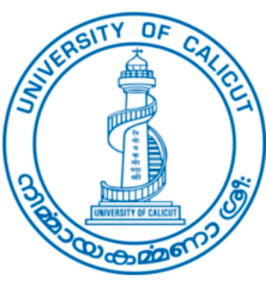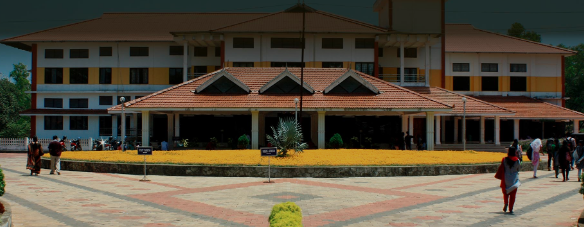Calicut University, also known as the University of Calicut, stands as a prominent institution of higher learning, offering a diverse array of courses tailored to meet the academic aspirations of students. As prospective scholars gear up for admissions in 2024, let’s delve into the offerings, rankings, and fee structures of this esteemed university.
In this article, we are going to discuss about University of Calicut: Courses, Admission 2024, Rankings, Fees
Calicut University: Full Details
The story of Calicut University, fondly known as the University of Calicut, is a tale of academic excellence, perseverance, and growth. Let’s embark on a journey through its origin and history, unraveling the threads that weave together its illustrious legacy.
Origin of Calicut University
Calicut University traces its origins back to the year 1968 when it was established under the University of Kerala Act, with the aim of catering to the educational needs of the northern districts of Kerala. Situated in the historic city of Calicut (Kozhikode), the university was envisioned as a beacon of knowledge, fostering intellectual pursuits and cultural enrichment in the region.

The establishment of Calicut University marked a significant milestone in the educational landscape of Kerala, paving the way for accessible higher education and academic advancement for aspiring scholars from diverse backgrounds. Over the years, the university has evolved and expanded its academic offerings, embracing innovation and excellence in education.
History and Evolution of Calicut University
Since its inception, Calicut University has undergone a remarkable journey of growth and transformation, adapting to the changing needs of society and the evolving demands of the academic world. The university’s commitment to academic excellence, research, and community engagement has propelled it to prominence within the state and beyond.
In its formative years, Calicut University began with a handful of departments and affiliated colleges, laying the groundwork for its future expansion and development. With each passing year, the university witnessed steady growth, both in terms of infrastructure and academic programs, catering to an increasingly diverse student population.
Over the decades, Calicut University has established itself as a hub of learning and innovation, nurturing bright minds and shaping future leaders across various disciplines. Its faculties of arts, science, commerce, management, and technology have garnered acclaim for their academic rigor and relevance in today’s dynamic world.
Milestones of Calicut University
Throughout its journey, Calicut University has achieved numerous milestones that underscore its commitment to excellence and academic advancement. From the establishment of new departments and research centers to the introduction of innovative academic programs, the university has continually strived to push the boundaries of knowledge and learning.

Notable milestones in the history of Calicut University include the inauguration of its campus at Tenhipalam, the establishment of the School of Distance Education, and the accreditation by esteemed bodies such as the National Assessment and Accreditation Council (NAAC). These milestones serve as testament to the university’s unwavering dedication to quality education and holistic development.
Course of Calicut University
Calicut University, renowned for its commitment to academic excellence and innovation, offers a diverse array of courses catering to the varied interests and aspirations of students. Let’s delve into the rich tapestry of academic offerings, spanning across disciplines ranging from arts and humanities to science and technology.
Arts and Humanities:
Undergraduate programs in arts and humanities typically encompass a broad range of subjects, allowing students to develop a well-rounded understanding of the world around them. From analyzing literary classics to unraveling historical narratives, the courses offered ignite intellectual curiosity and encourage creative expression.
English: Explore literature, language, and critical analysis.
History: Uncover past civilizations, events, and socio-political movements.
Economics: Understand economic theories, principles, and global trends.
Political Science: Analyze political systems, governance, and international relations.
Sociology: Study societal structures, cultural dynamics, and social issues.
Philosophy: Engage in philosophical discourse, ethics, and metaphysics.
Languages: Master linguistic skills in regional and foreign languages.
Fine Arts: Express creativity through painting, sculpture, and visual arts.
Literary Studies: Examine literary genres, authors, and literary theory.
Cultural Studies: Explore cultural identities, traditions, and cultural heritage.
Communication Studies: Develop communication skills, media literacy, and rhetoric.
Theatre and Performing Arts: Participate in theatre, drama, and performance studies.
Religious Studies: Analyze religious beliefs, practices, and comparative religion.
Gender Studies: Investigate gender roles, feminism, and gender equality.
Music: Learn music theory, composition, and performance techniques.
Science and Technology:
Physics: Study the fundamental laws of nature, mechanics, and quantum phenomena.
Chemistry: Explore the composition, properties, and reactions of matter.
Mathematics: Master mathematical concepts, theories, and problem-solving skills.
Biotechnology: Apply biological principles to develop technologies for various industries.
Computer Science: Learn programming, algorithms, and computer systems design.
Environmental Science: Investigate environmental issues, conservation, and sustainability.
Botany: Study plant biology, taxonomy, and ecological interactions.
Zoology: Explore animal diversity, physiology, and behavior.
Geology: Understand Earth’s processes, geological formations, and mineral resources.
Microbiology: Explore microorganisms, microbial genetics, and applications in biotechnology.
Biochemistry: Investigate the chemical processes within living organisms.
Electronics: Learn about electronic circuits, devices, and signal processing.
Information Technology: Gain expertise in IT infrastructure, networks, and cybersecurity.
Agricultural Science: Study agricultural practices, crop cultivation, and soil science.
Nanotechnology: Explore the manipulation of matter on an atomic or molecular scale.
These courses provide a rigorous academic foundation coupled with hands-on practical training, equipping students with the skills and knowledge necessary to tackle real-world challenges. With state-of-the-art laboratories and research facilities, Calicut University fosters a culture of scientific exploration and innovation, empowering students to make meaningful contributions to their respective fields.
Commerce and Management:
In an increasingly globalized economy, proficiency in commerce and management principles is essential for success in the business world. Calicut University offers comprehensive programs in Commerce, Business Administration, and Hotel Management, catering to the diverse needs of aspiring entrepreneurs and corporate professionals. Below we mention some courses related to commerce and management program.
Commerce: Understand accounting principles, financial management, and business operations.
Business Administration: Learn strategic planning, organizational behavior, and leadership skills.
Accountancy: Master financial reporting, auditing, and taxation practices.
Finance: Explore investment analysis, portfolio management, and financial markets.
Marketing Management: Understand consumer behavior, market research, and branding strategies.
Human Resource Management: Learn recruitment, training, performance management, and employee relations.
Entrepreneurship: Develop skills in business innovation, startup management, and business plan development.
International Business: Explore global trade, international marketing, and cross-cultural management.
Retail Management: Understand retail operations, merchandising, and customer service strategies.
Supply Chain Management: Learn logistics, inventory management, and supply chain optimization.
E-commerce: Explore online business models, digital marketing, and e-commerce platforms.
Business Analytics: Gain expertise in data analysis, predictive modeling, and decision-making.
Corporate Governance: Understand ethical principles, corporate social responsibility, and governance frameworks.
Operations Management: Study production planning, quality management, and process optimization.
Strategic Management: Learn strategic planning, competitive analysis, and business development strategies
PhD Courses
Doctor of Philosophy (PhD) in Business Administration: Explore advanced concepts in management, organizational behavior, and strategic leadership.
Economics: Conduct research on economic theories, policy analysis, and empirical studies to contribute to the field of economics.
Computer Science and Engineering: Pursue cutting-edge research in computer science, including artificial intelligence, cybersecurity, and data science.
Environmental Science: Investigate environmental issues, sustainability practices, and conservation strategies through interdisciplinary research.
Literature and Language Studies: Delve into literary theory, linguistics, and comparative literature to advance scholarship in the field of humanities.
Biotechnology: Conduct research in biotechnology, genetic engineering, and bioinformatics to address challenges in healthcare, agriculture, and industry.
Chemistry: Explore fundamental principles of chemistry, including organic, inorganic, and physical chemistry, through research and experimentation.
Education: Investigate educational theories, pedagogical practices, and educational policy to improve teaching and learning outcomes.
Psychology: Conduct research in areas such as cognitive psychology, social psychology, and clinical psychology to advance understanding of human behavior and mental processes.
Public Health: Investigate public health issues, epidemiology, and healthcare policy to promote population health and wellbeing.
Social Work: Conduct research on social welfare policies, community development, and social justice issues to address societal challenges.
Physics: Explore theoretical and experimental aspects of physics, including quantum mechanics, particle physics, and astrophysics.
Sociology: Investigate social structures, inequalities, and cultural dynamics to contribute to sociological theory and research.
PhD in History: Conduct historical research on specific time periods, events, or themes to advance understanding of the past and its implications for the present.
PhD in Management Information Systems: Explore research topics related to information technology, data management, and decision support systems in organizational settings.
Read More on Calicut University’s Website
Fee Structure of Calicut University
Bachelor’s Programs:
Arts (BA): INR 10,000 – INR 25,000 per annum.
Science (BSc): INR 10,000 – INR 25,000 per annum.
Commerce (BCom): INR 10,000 – INR 25,000 per annum.
Bachelor of Business Administration (BBA): INR 10,000 – INR 25,000 per annum.
Bachelor of Technology (B.Tech): INR 50,000 – INR 75,000 per annum.
Master’s Programs:
Arts (MA): INR 15,000 – INR 30,000 per annum.
Science (MSc): INR 15,000 – INR 30,000 per annum.
Commerce (MCom): INR 15,000 – INR 30,000 per annum.
MBA: INR 30,000 – INR 50,000 per annum.
M.Tech: INR 50,000 – INR 75,000 per annum.
PhD Programs:
Doctor of Philosophy (PhD): INR 20,000 – INR 40,000 per annum.
Conclusion
The University of Calicut stands as a testament to the transformative power of education, nurturing minds and shaping futures. With its diverse academic offerings and competitive fee structures, it paves the way for aspiring scholars to realize their dreams and aspirations.
Whether you’re drawn to the allure of literature, the intrigue of science, or the dynamism of management, there’s a place for you within the hallowed halls of this esteemed institution. Seize the opportunity to embark on an academic odyssey that will propel you towards success and fulfillment.




